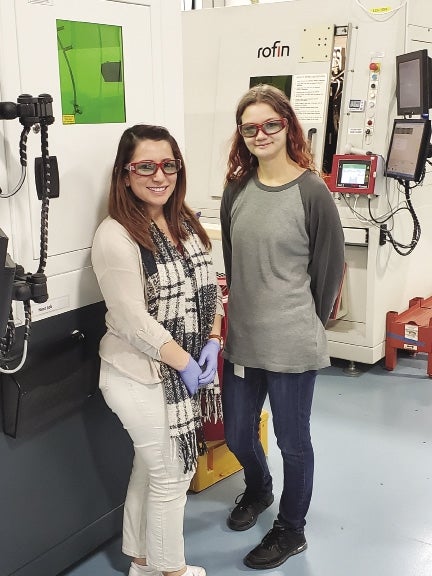It’s not easy to find a well-paying job with benefits when you lack a college degree or years of experience. It can be even harder if you’re new to the U.S.
Get Instant Access to This Article
Subscribe to Worcester Business Journal and get immediate access to all of our subscriber-only content and much more.
- Critical Central Massachusetts business news updated daily.
- Immediate access to all subscriber-only content on our website.
- Bi-weekly print or digital editions of our award-winning publication.
- Special bonus issues like the WBJ Book of Lists.
- Exclusive ticket prize draws for our in-person events.
Click here to purchase a paywall bypass link for this article.
It’s not always easy to find a good, well-paying job with benefits when you don’t have a college degree or years of experience. It can be even harder if you’re new to the U.S. But in my job as a manufacturing director in a medical device company, I get to see the advantages this industry offers employees of all backgrounds and education levels.
Not your father’s manufacturing
We offer many jobs not requiring a degree. Some people, however, have a negative perception about working in manufacturing. But making medical devices is different; even in the heart of the manufacturing floor, it’s clean, bright, and climate controlled. Medtech companies like ours can have cleanrooms where white-coated employees operate machines and assemble parts. Employees know they’re part of something important: Creating intricate products improving and even saving lives.
Already a supervisor at 24 years old
Autumn Nichols is an example of how a great attitude and work ethic can fuel a medtech career. After graduating from high school, she briefly worked in a coffee shop before joining us as an assembler. We appreciated her attention to detail and work ethic, so we transferred her to an electrical discharge machining position. She was promoted to be a group leader and then supervisor in assembly, where she oversees EDM, and finishing operations. She’s so respected and trusted she was asked to join a customer meeting because of her unique knowledge of making their product.
From lavatories to lasers
Sonia Avila is another example of medtech’s transformative opportunities for someone with no manufacturing experience. Avila, who came to the U.S. from Guatemala, joined Tegra Medical as an office and bathroom cleaner. We were struck by her strong work ethic, positive attitude, and pride in a job well done. It was clear she had the qualities we look for on the manufacturing floor, so we promoted her to an assembly position. A year later she was promoted to be a laser setup operator, which means she doesn’t just operate this highly sophisticated machinery, she sets it up to make different parts, meeting very high expectations in this challenging work.
Opportunities to learn and grow
Operators like Nichols and Avila can learn new skills and take on more responsibility, including moving into supervisory roles. In addition to learning on the job, employees can take advantage of classes taught onsite, like leadership and blueprint reading.
Sometimes it makes sense for an employee to seek outside education. Andrew Tavares was a secondary operator interested in joining our toolmaker apprentice program. He enrolled in a community college program to gain the prerequisite machining skills and is now a first-year member of the apprentice program while we reimburse his continuing education costs.
We’ve found apprentice programs are a great way to help motivated employees jumpstart their careers. In addition to the toolmaker program, we’re adding programs for different kinds of skilled machining. With the robust growth of medtech in Massachusetts, these advanced skills will be in high demand.
Medtech is an industry with a bright future in Massachusetts; it will continue to offer enviable opportunities for workers from many backgrounds to have solid, satisfying, long-term careers.
Brian Rua is the director of manufacturing for Tegra Medical in Franklin.

